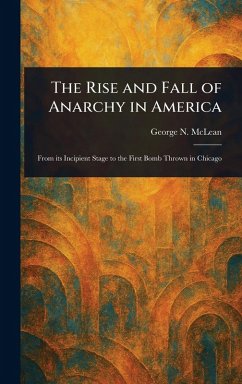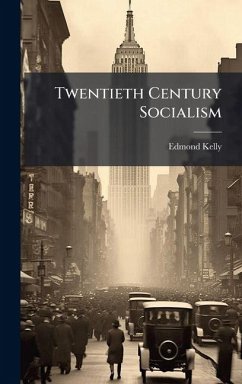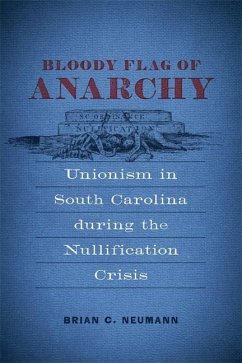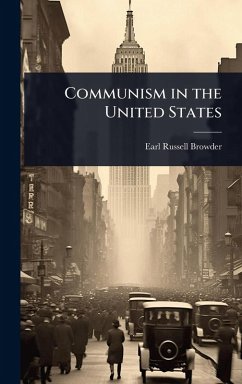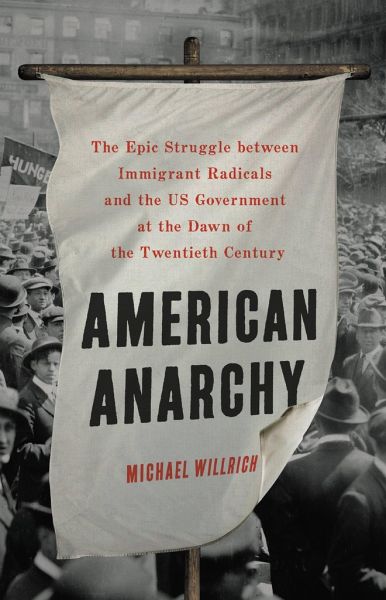
American Anarchy
The Epic Struggle Between Immigrant Radicals and the Us Government at the Dawn of the Twentieth Century

PAYBACK Punkte
13 °P sammeln!
"From the Gilded Age to the first Red Scare of 1919-1920, the American anarchist movement clashed with some of the nation's most powerful institutions and individuals. Anarchists never comprised more than a small minority the labor movement. Their vision of a world without states, borders, laws, organized religion, or private property proved far too radical for even the most open-minded liberals of their day-particularly when some anarchists advocated terrorist violence. By the turn of the twentieth century, in the face of this challenge to American values and political traditions, American le...
"From the Gilded Age to the first Red Scare of 1919-1920, the American anarchist movement clashed with some of the nation's most powerful institutions and individuals. Anarchists never comprised more than a small minority the labor movement. Their vision of a world without states, borders, laws, organized religion, or private property proved far too radical for even the most open-minded liberals of their day-particularly when some anarchists advocated terrorist violence. By the turn of the twentieth century, in the face of this challenge to American values and political traditions, American leaders chose to suspend those very values to destroy the anarchist movement. They vilified anarchism as an "alien" contagion, launched an unprecedented buildup of government surveillance, called for draconian restrictions on free speech, and used immigration laws to expel non-citizen anarchists from the nation. This decades-long "war on anarchy" in turn inspired the emergence of the modern civil liberties movement, grounded in Constitutional freedoms of speech and due process. Seeking to defend anarchist thinkers who denounced the liberal idea of the rule of law, this movement breathed new life into the Bill of Rights and spurred debates about the proper limits of government power that continue today. In American Anarchy, award-winning historian Michael Willrich weaves the gripping tale of these anarchists, their allies, and their enemies, showing how they together transformed the United States. Willrich vividly recaptures the radical political world of early twentieth-century New York City-the nation's chief port of arrival for new immigrants and its preeminent financial and industrial center. New York was home to the infamous Russian-Jewish anarchists Emma Goldman and Alexander Berkman and their social network of Eastern European and Italian immigrant radicals, who championed industrial democracy, demanded reproductive freedom for women, and fought for free speech. From the start, their alien status and spectacles of protest made the anarchists targets for government officials. But when anarchists took a stand against the First World War and celebrated the Russian Revolution, the war against anarchy took on a new ferocity. To fight back, Goldman, Berkman, and their colleagues called on lawyers like the young Harry Weinberger, a night-school-educated attorney from the Lower East Side who found his calling defending radicals in criminal trials, Ellis Island deportation hearings, and before the U.S. Supreme Court, and whose work laid the groundwork for the American Civil Liberties Union. By taking the anarchists seriously as flawed but principled political actors, American Anarchy unlocks one of the great puzzles of modern U.S. history, revealing how a powerful national government and a robust conception of individual liberty emerged at the very same moment in the early twentieth century."--




